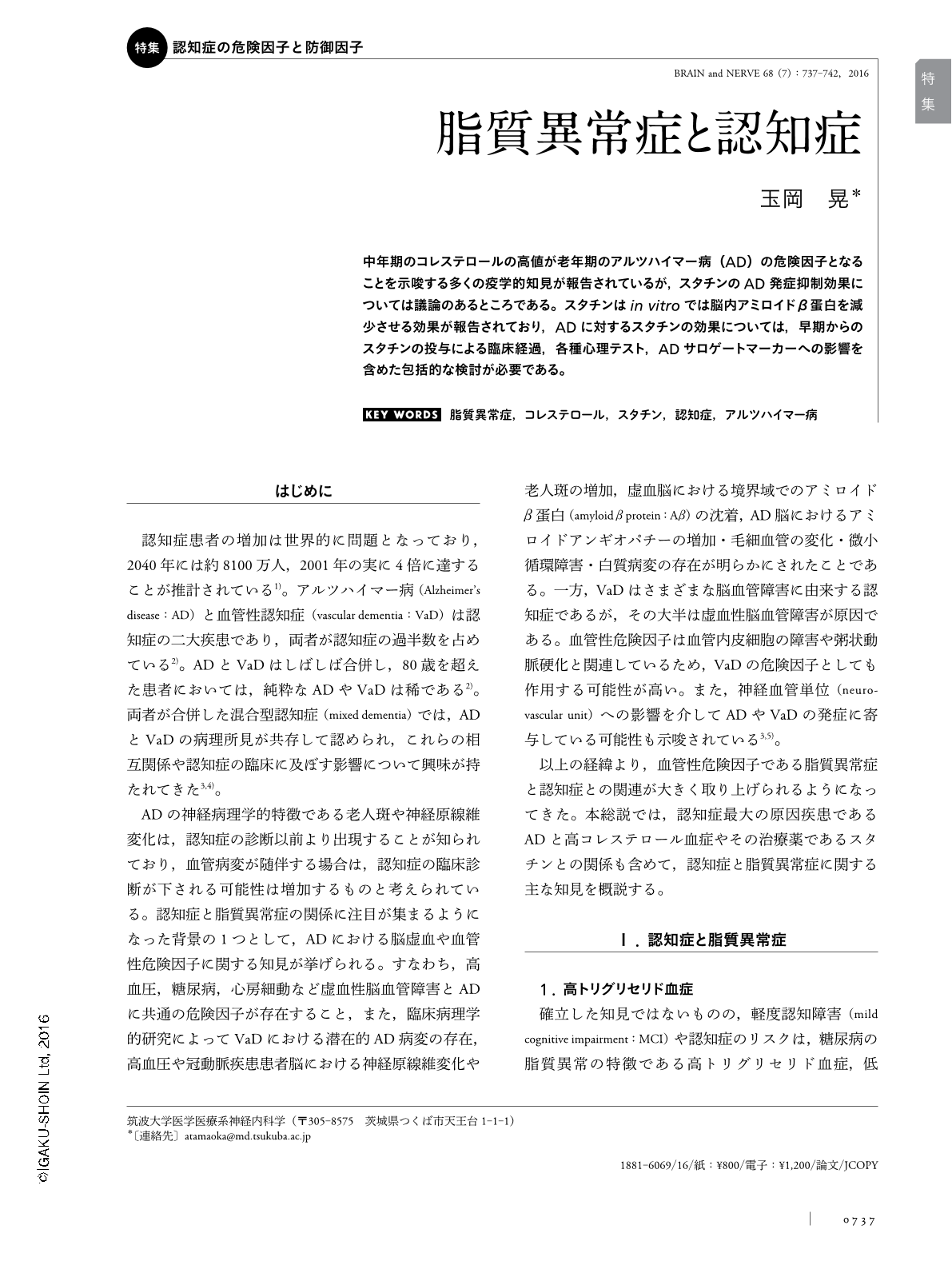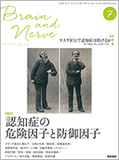Japanese
English
- 有料閲覧
- Abstract 文献概要
- 1ページ目 Look Inside
- 参考文献 Reference
中年期のコレステロールの高値が老年期のアルツハイマー病(AD)の危険因子となることを示唆する多くの疫学的知見が報告されているが,スタチンのAD発症抑制効果については議論のあるところである。スタチンはin vitroでは脳内アミロイドβ蛋白を減少させる効果が報告されており,ADに対するスタチンの効果については,早期からのスタチンの投与による臨床経過,各種心理テスト,ADサロゲートマーカーへの影響を含めた包括的な検討が必要である。
Abstract
Several lines of evidences support a possible involvement of serum cholesterol in the development of dementia/Alzheimer's disease (AD), with hypercholesterolemia as one of the risk factors that can be targeted by therapeutic interventions. It has also been suggested that statins, prescribed as lipid-lowering drugs to patients at risk for cardiovascular conditions, may be useful in both the prevention and treatment of AD. Currently, conflicting evidences from epidemiological studies indicate a controversial association between dyslipidemia and dementia/AD risk. In randomized clinical trials, virtually no beneficial effect of statin therapy has been observed. On the other hand, in vitro and in vivo animal experiments have revealed that statins suppress amyloid β protein (Aβ) generation. All these findings suggest that statins can be potentially used as preventive or therapeutic agents for AD. In addition, currently the pathophysiological process of AD is thought to begin many years before the diagnosis of AD dementia. Then, statin treatment as well as some disease-modifying therapies may be more efficacious at an early stage of AD including preclinical AD or mild cognitive impairment due to AD.

Copyright © 2016, Igaku-Shoin Ltd. All rights reserved.


